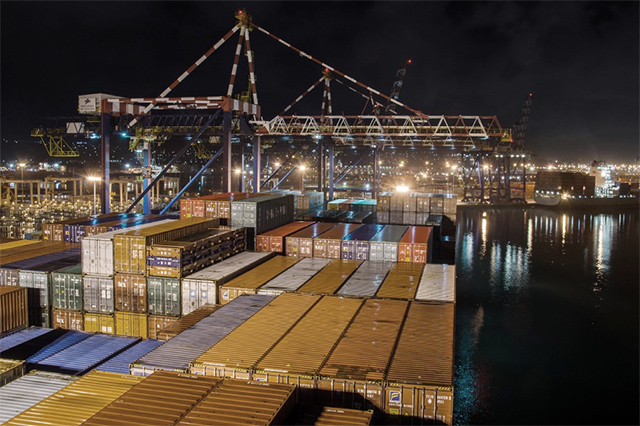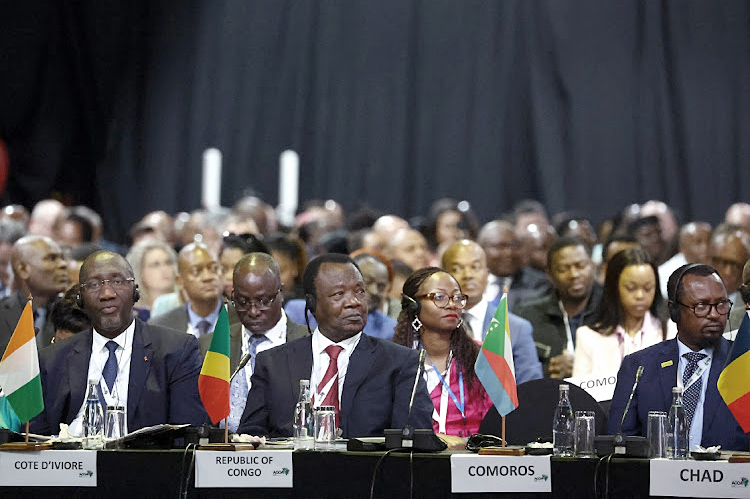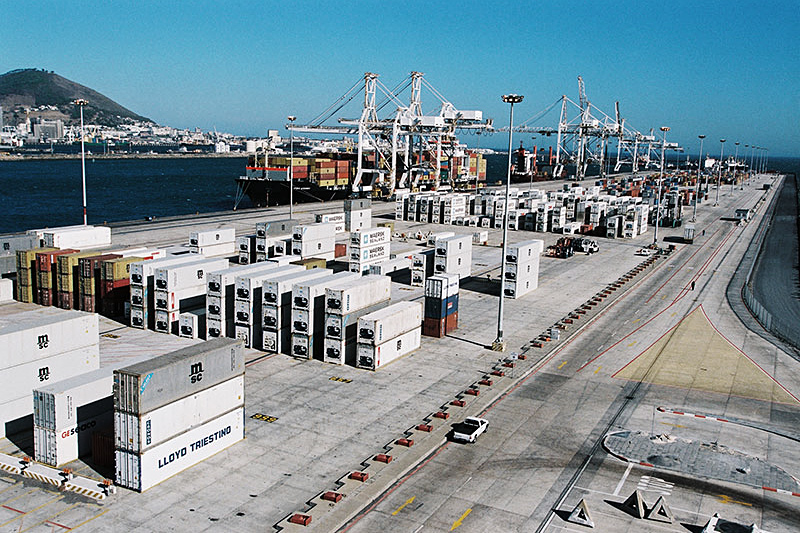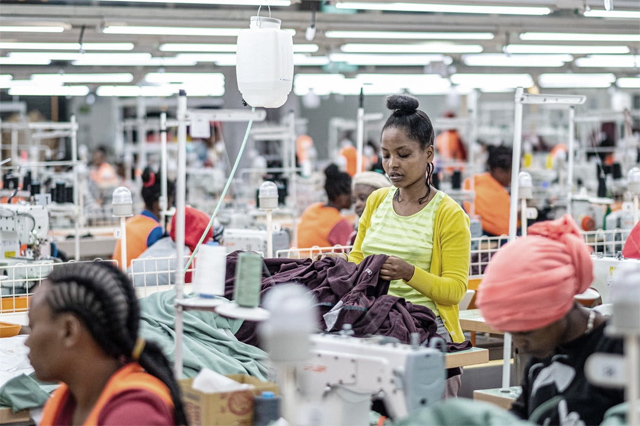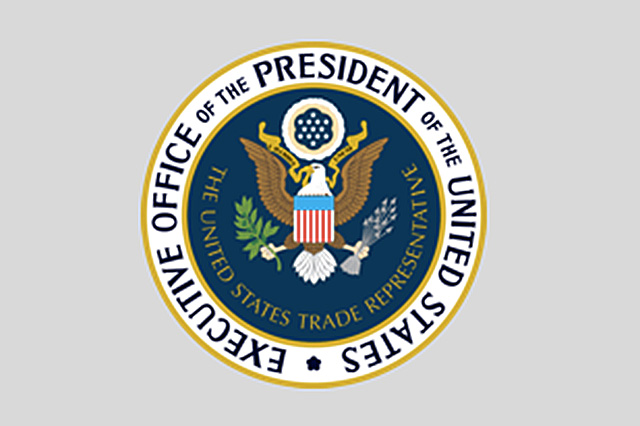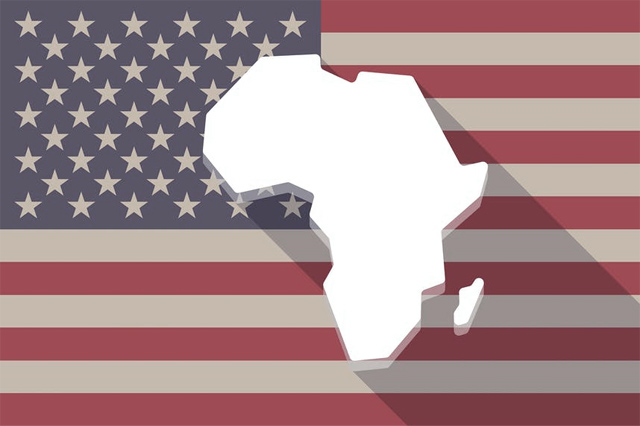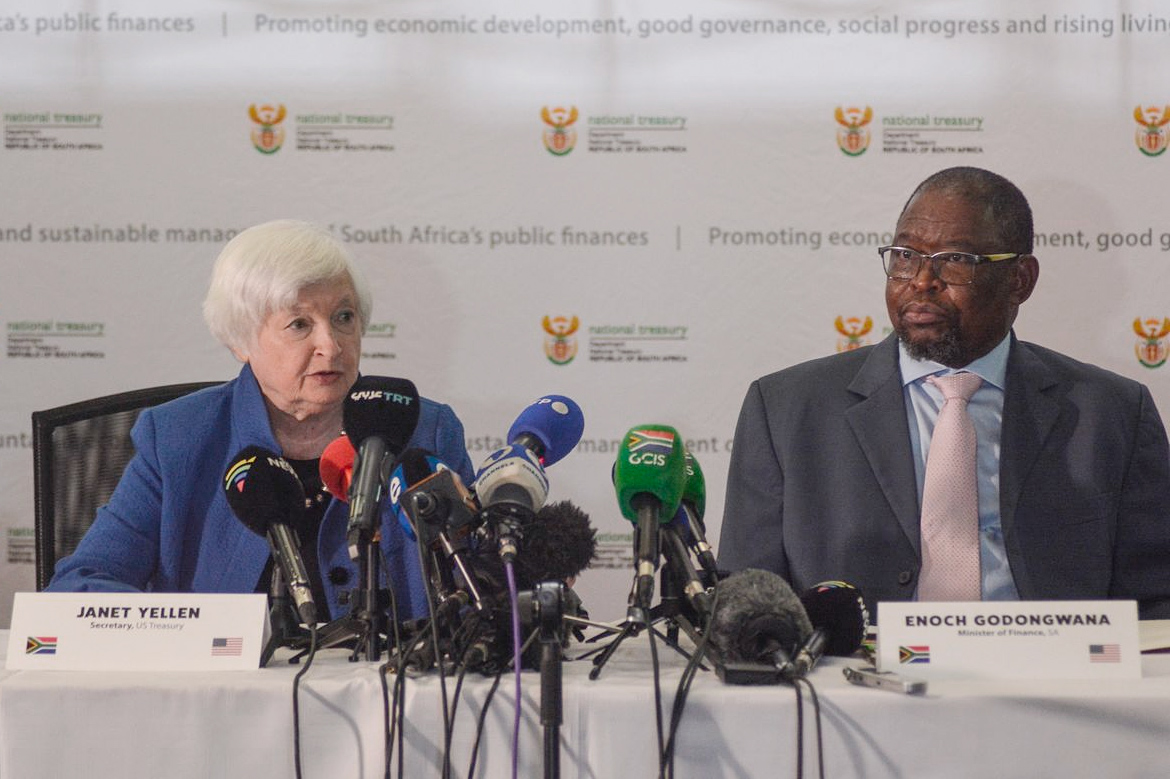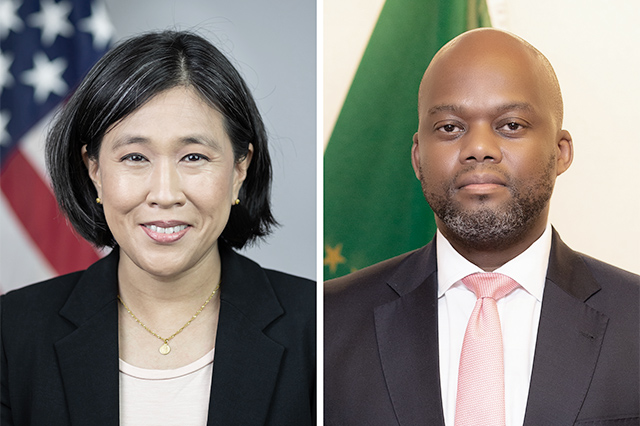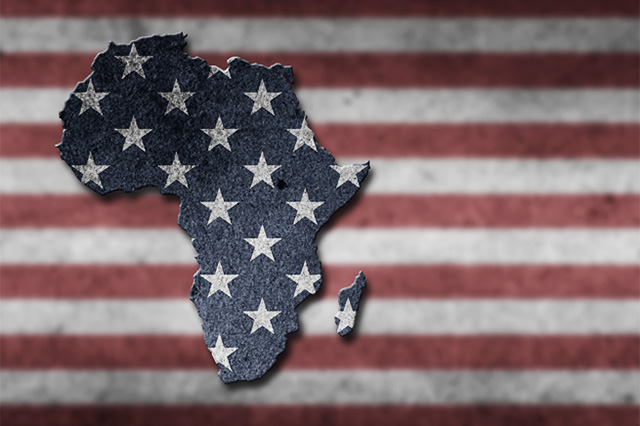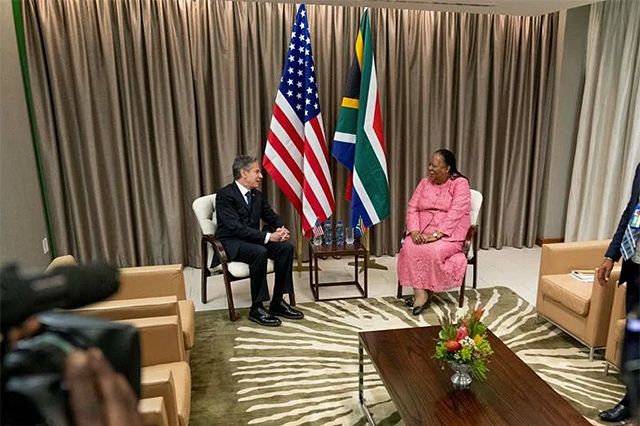The future of AGOA and US-Africa trade
At a time when the US was struggling to stay on its two feet in the heat of a looming economic meltdown in 2008, were hopes of better trade deals with Africa unrealistic when President Barack Obama was elected into office?
Despite the domestic problems in which Obama's administration was embroiled, the criticisms and questions came from many African quarters: Why did Obama wait for nine months after he'd been sworn in before naming his Ambassador to the African Union? Why is China doing better on the continent in terms of trade?
With its seemingly unperturbed economic growth, Africa has come to represent a gold-rush not to be missed. Six of the world's top 10 fastest growing economies are in Africa.
Seeking economic opportunities, China has been at the forefront of investment both in the extractive and infrastructure sectors on the continent. But can the same be said for the United States? According to outgoing Assistant Secretary of State for African Affairs, Johnnie Carson, since 2009 The US Overseas Private Investment Corporation, OPIC "has supported private sector investments totaling over $2 billion across Africa, an all-time record".
The year 2009 also marked the year when China overtook the United States as Africa's biggest trading partner. The US is falling behind despite its myriad bilateral investment treaties and partnership programmes on the continent, including The African Growth and Opportunity Act (AGOA), Millennium Challenge Corporation (MCC), African Women Entrepreneurship Program (AWEP), among others... and USAID, which until the first quarter of 2012 did not have a permanent assistant administrator.
The Significance of Oil
AGOA, the biggest yet in US-Africa engagement on trade, was proposed during President Bill Clinton's era and enacted in 2000. In spite of bolstering trade relations between the US and Africa - registering a 21 percent increase in its 2011 import revenue compared to 2010 - most of AGOA's import revenue has come from the extractive, particularly oil, sector.
As a result of the United States' increase in shale-gas production from 20 percent in 2010 to a target of 46 percent in 2035 to total independence in the next 50 years, fears over the sustainability of US-Africa trade relations have been widely expressed. Already, Nigeria has experienced a 50 percent drop in its oil exports to the US since 2010. A difficult situation when the West African country's Oil and Gas exports, which account for 94 percent of total exports, is considered. Oil import revenue, which accounts for over 90 percent of all AGOA revenue, has also been brought to the fore.
The importance of AGOA in US-Africa trade relations cannot be underestimated. "AGOA has helped create at least 200,000 jobs Africa's textile under its third country fabric provisions, which was set to expire in September 2012 and was extended by Congress at the 11th hour", says, Diallo Cellou, a New York-based international investment and economic geostrategy expert, speaking at a symposium organised by Cercle Andrew Young in Paris under the theme: What should Africa expect after Obama's re-election?
Overall merchandise imports from sub-Saharan Africa in 2011 amounted to a little over $74.2bn, with AGOA import revenue alone reaching $53.8bn out of which $5m was from non-oil imports.
Bipartisan Consensus
While the chances of AGOA being renewed in 2015 remain high, doubts over whether or not a renewal would translate into big bucks for Africa remain. This is especially so as gas exploration along the east coast of Africa, oil finds in West Africa, shale-gas in South Africa and the US states of North Dakota and Texas, the return of Libyan Oil, all promise to enhance decline in oil and gas prices as a result of huge export volumes. The potential oil and gas boom does not necessarily augur well for the heavily oil-dependent AGOA.
"AGOA's main objective is to promote the economic emergence of Africa and to enable it join a world economic collective. But despite the interest many countries have expressed in the programme, it remains very selective. And for good reason. Above all else, the US is serious about protecting its national security and economic interests, while building a stronger partnership with African countries", says Angelle Kwemo, president of A Strategik Group (ASG), a Washington DC-based consultancy firm.
"AGOA is very selective and only a few out of over forty countries that were expected to enjoy that relationship with the US actually do", remarks Cellou. He questions whether the programme was designed for oil producing African countries.
But notwithstanding the lack of engagement with the continent during most of his first term in office, there is reason to remain optimistic about Obama's administration's Africa policy for the next four years. This is because while "Africa has not been the Obama administration's priority ... US-Africa trade is one thing both Republicans and Democrats alike agree on", suggests Professor Ekovich, a political science professor at the American University in Paris.
"For both Democrats and Republicans, protecting US interests is an integral part of American foreign policy ... but it must be noted that AGOA was created without really consulting Africans," argues Cellou.
Collective Bargain
Nonetheless, the increase in value of Africa's top 500 companies from $393bn to just under $690bn between 2005 and 2010, according to The Africa Report's annual survey, might see the US rethinking its trade policies with the continent. A recent announcement by acting US Commerce Secretary Dr. Blank that the US would be launching the Doing Business in Africa initiative, sees the world's biggest economy gravitating towards African businesses, and may encourage diversity in trade relations.
"But to enjoy better trade relations with the US, African institutions must undertake the necessary regulatory reforms to attract investors and help their private sector to fully take advantage of the AGOA preferences" says Kwemo. She expresses her misgivings about the continent's readiness, however, as she recollects some of her experiences as a counsel to Hon. Bobby L Rush (Democrat - Chicago), a senior member of the US Committee on Energy and Commerce, during Obama's first term in office.
Aside from the issue of technical knowhow that burdens some African political circles, according to Kwemo, there is disconnect between the younger and older generations. In another example, she tells the story of a group of young Africans who surprised a gathering of international businessmen in New York with their intricate contributions on a raft of complex business transactions. "Africa has the keys to its own development. The only way to overcome some of these trade barriers and enhance US-Africa partnership is to organise and present a collective voice," advises Kwemo.
Remigius Kintu, an author and economist, believes that Africa will succeed in business the same way it did when young people gathered to hatch plans to get rid of its former dictators. "It was through collective action that we were able to push a bill into law in the US that helped get rid of Ugandan dictator, Idi Amin" says Kintu. He strongly believes that those dynamics have not changed.
But Africa's non-homogeneous constitution makes negotiations at the continental level to present a collective bargain difficult, according to Cellou. Although he laments the regrettably polarised Anglo-Franco ECOWAS bloc - the West African governing body - he suggests that Africa's regional economic bodies stand better chances of negotiating better economic deals. "More trade is being organised through regional economic blocs the world over. Let's not be naïve, Obama or not, the first priority of any American administration is to safeguard its interests and a better organised region is likely to enjoy better trade relations with the US.
"As at present, the ambitious organisation of SADC (Southern African Development Community) and EAC (East African Community) has encouraged the US to increase its trade engagement with that regional integration", Kwemo adds.
As the future of US-Africa trade in terms of oil beckons, it is up to Africa to develop other aspects of its export industry as it braces for a huge dent in its oil and gas import revenues.



